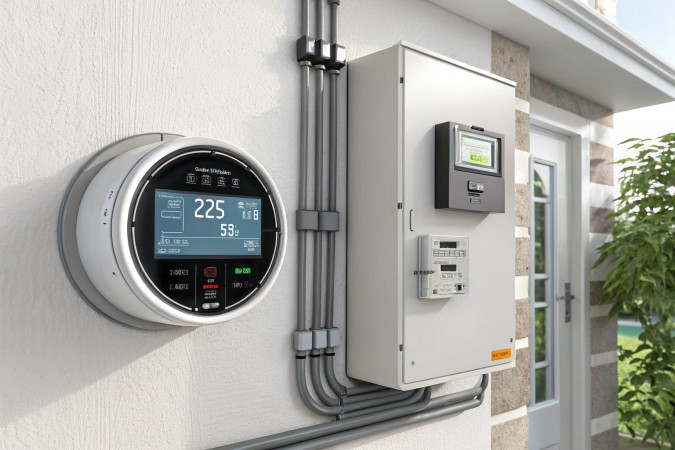
Follow India Renewable Energy News on WhatsApp for exclusive updates on clean energy news and insights
India’s Smart Meter Program Faces Significant Delays, with Only 2.085 crore Installed
Mar 01, 2025
India’s ambitious plan to install 25 crore smart meters by March 31, 2026, under the Revamped Distribution Sector Scheme (RDSS) is significantly behind schedule. As of now, only 2.085 crore smart meters have been deployed, which is less than 10% of the target, according to the latest data from the National Smart Grid Mission.
Current Progress & State-Wise Performance
- Total Approved Meters: 22.235 crore
- Meters Awarded: 3.802 crore
- Meters Installed: 2.085 crore
- Top Performing States:
- Bihar: 0.618 crore
- Assam: 0.307 crore
- Uttar Pradesh: 0.226 crore
- Madhya Pradesh: 0.189 crore
- Punjab & Chhattisgarh: 0.13 crore+
Karnataka and Kerala have made negligible progress, with zero and 805 smart meters installed, respectively.
Challenges Hindering Smart Meter Deployment
- Lack of Awareness: Both consumers and utilities have limited understanding of smart meter benefits.
- Tendering & Award Delays: Slow procurement processes by utilities.
- IT & Infrastructure Gaps: Distribution utilities lack dedicated IT teams with expertise in smart metering.
- Data Validation Issues: Delays in collecting and verifying consumer indexing data.
- Regulatory Bottlenecks: Delays in testing, approvals, and integration for smart meter field installations.
Despite these setbacks, the Ministry of Power has affirmed that India has the capacity to manufacture 10 crore smart meters annually, indicating that supply chain constraints are not the issue.
Benefits of Smart Meters & Impact on Distribution Utilities
- Grid Efficiency: Smart meters enable real-time tracking of electricity consumption and accurate billing, reducing revenue losses for utilities.
- Energy Savings: In Assam, 44% of consumers saved approximately 50 units per month after installing smart meters.
- Operational Sustainability: Utilities in Assam and Bihar reported a reduction in distribution losses, with savings ultimately benefiting consumers.
- Remote Monitoring & Control: Smart meters facilitate two-way communication, allowing utilities to manage load, detect outages, and improve billing efficiency.
Parliamentary Standing Committee’s Concerns
In a December 2024 report, the parliamentary standing committee on energy expressed skepticism over meeting the March 31, 2026 deadline. The committee noted that while 51% of approved meters and 75% of infrastructure work were awarded, only 12% of actual implementation had been completed.
The committee urged the Ministry of Power to expedite the rollout within the next 16 months to avoid missing the target.
The Road Ahead
- The government is offering a Rs900 subsidy per smart meter or 15% of the cost (whichever is lower) to encourage faster adoption.
- The scheme also mandates metering at feeder and distribution transformer (DT) levels—but progress is slow, with only 423,192 DT meters installed out of a 0.529 crore target.
- Stronger enforcement and faster tender approvals are essential to accelerate deployment.